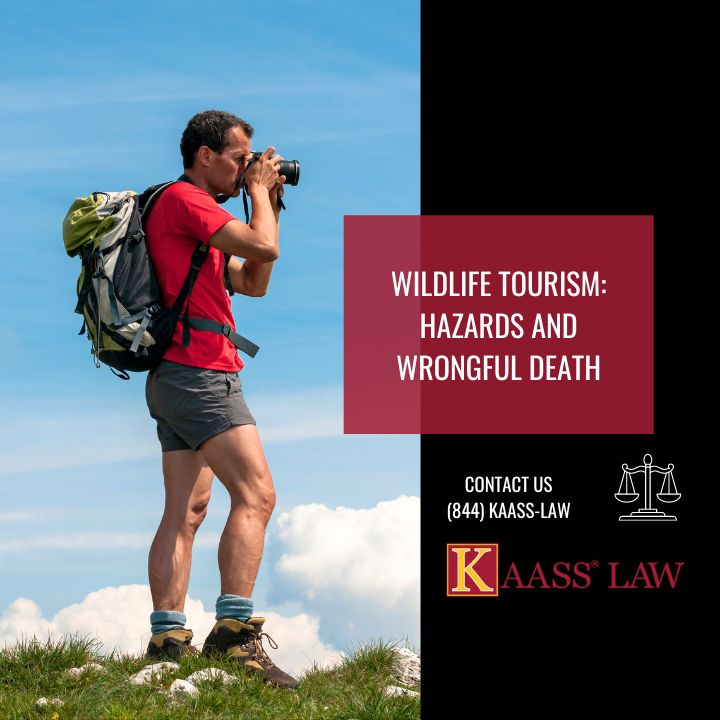Wildlife tourism, a flourishing industry that combines adventure and nature exploration, offers travelers the opportunity to connect with the world’s most captivating creatures. Yet, beneath the allure of up-close encounters lies a realm of ethical complexities and legal uncertainties. The tragic occurrences of wrongful death during wildlife tourism activities have ignited substantial concerns. This thereby prompts a deep introspection into the responsible management of such interactions. Let’s delve into the delicate balance between the thrill of wildlife tourism and the pressing need for ethical guidelines and legal protections to prevent wrongful deaths.
The Appeal and Hazards of Wildlife Tourism
Wildlife tourism grants us the privilege of observing splendid creatures within their indigenous domains. Whether it be traversing African savannas or snorkeling amidst marine wonders, these interactions provide unmatched avenues for learning, admiration, and indelible recollections. Yet, intertwined with this exhilaration are latent perils that can culminate in hazardous consequences, giving rise to weighty legal and ethical dilemmas.
Ethical Considerations: Conservation and Animal Welfare
- Disturbance of Natural Behavior: Encounters with tourists can disrupt animals’ natural behaviors, leading to stress, altered feeding patterns, and displacement. The ethical dilemma lies in balancing the desire for captivating experiences with the need to respect animals’ rights to their natural environment.
- Habituation and Dependency: Frequent interaction with humans can lead animals to become habituated, losing their natural fear of humans. This dependency on tourism for food or attention can negatively impact the ecosystem’s balance and the animals’ long-term survival.
- Conservation Funding vs. Exploitation: Many argue that wildlife tourism contributes to conservation efforts through funding and awareness. However, striking the right balance between these goals and avoiding the exploitation of animals for financial gain is a challenge.
Legal Complexities: Accountability and Responsibility
- Inadequate Safety Measures: Cases of wrongful death during wildlife tourism activities often highlight inadequate safety measures, which raise questions about the operators’ responsibility to ensure the well-being of participants.
- Lack of Regulations: In some regions, wildlife tourism is poorly regulated, leaving tourists vulnerable to risks. The absence of clear legal frameworks exacerbates the difficulty in holding operators accountable for accidents or fatalities.
- Participants’ Assumption of Risk: Many wildlife tourism activities involve inherent risks, and participants often sign liability waivers acknowledging these risks. However, the question remains: to what extent can these waivers protect operators from liability in cases of negligence?
Preventing Wrongful Deaths: Ethical and Legal Solutions
- Responsible Tourism Practices: Wildlife tourism operators must adopt responsible practices that prioritize the welfare of both animals and tourists. This includes maintaining a safe distance, respecting animals’ habitats, and providing thorough safety briefings.
- Education and Awareness: Educating tourists about animals’ behaviors and the importance of conservation efforts can enhance their appreciation while minimizing disturbances.
- Ethical Certification: Establishing an ethical certification system for wildlife tourism operators could promote transparency, accountability, and adherence to best practices.
- Robust Regulations: Governments and international bodies should collaborate to create comprehensive regulations that address safety standards, animal welfare, and sustainable tourism practices.
- Enhanced Participant Screening: Operators should thoroughly assess participants’ physical fitness and familiarity with the activity’s risks, ensuring a better match between the experience and the participants’ capabilities.
Wrongful Death Attorney
The magnetic pull of wildlife tourism entices explorers to witness the marvels of nature up close. However, the industry’s expansion presents intricate ethical and legal quandaries. The occurrence of tragic wrongful deaths during these endeavors sheds light on vital needs. That includes, achieving a delicate balance between human fascination, the welfare of animals, and the safety of participants. We are equipped to navigate through the unexplored realm of wrongful death. That is, by embracing prudent protocols, fostering heightened awareness, and instituting comprehensive regulations. This will guide us toward a trajectory of wildlife tourism that is ethically sound and environmentally sustainable. In doing so, we can enrich lives while simultaneously mitigating the impact on creatures evoking our sense of wonder.
To contact a wrongful death attorney today, please call 310.943.1171. Be sure to visit our other website for more potential cases we can be of assistance to.

